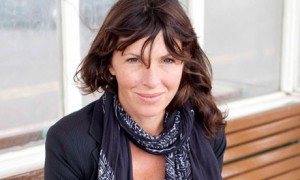I have just finished reading Rachel Cusk’s most recent book which reflects on the breakup of her marriage. This book caused quite a stir when it was published in early March – some critics felt it was too self-indulgent, others bemoaned the poor husband and children having their stories so publically aired. I began to read it with great anticipation, however, largely because her previous ‘memoir’ on becoming a mother had been such a fascinating read because it was so bold in the sense that she had not pulled any punches about the reality of pregnancy, childbirth and early motherhood. But also, I couldn’t wait to read the book because I have been through (several) moments where I have wondered – would I be better off alone, without my partner – would I be ‘freer’ – to parent and manage the day-to-day as I wished, without compromise and sometimes ‘giving in’?
The first half of the book had me completely hooked – the questions she explored, the imagery she invoked when thinking about marriage and separation where brilliant. The second half of the book did not keep my attention in the same way, I think I felt she started to experiment a little too much with the forms of writing she was using (becoming too literary perhaps for me – something I had felt about her fiction writing) and some ‘scenes’ did not leave me with a very clear idea about what point she was making. However, I just want to share with you some of the key questions she has left me mulling over:
- Rachel Cusk and her husband at some point after having their children decided to ‘reverse’ their roles – she became the breadwinner of the family while her husband stayed at home full-time with their two daughters. She writes, ‘we were a man and a woman who in our struggle for equality had simply changed clothes’. My partner often wishes he could give up work and stay at home full-time – he is much more of a ‘homemaker’ than I am – but as for Rachel Cusk, I know such an arrangement would not work, for me at least; I don’t want to give up on my work or on the time that I have looking after my children during the week. Is equality within families about a 50/50 split? It depends on the couple and on the individuals in the relationship I think. As my partner always argues – you can’t split every task and role down the line!
 The generational transmission of gender roles and values is also something Rachel Cusk considers – although she did not follow her mother’s path, she did not comfortably embody the norms of her father either. Following on from that train of thought – I wonder how my children will view and challenge the norms that their parents (i.e. me and their father) have embodied? Are more and more children slowly experiencing various versions of greater sharing of income generation and caring responsibilities within families so there are more backcloths from which our children can forge their own future trajectories – which may be more equal? I think fundamentally, Rachel Cusk’s book has made me think again, even more critically about what ‘equality’ in family life could look like? While it can be something that a family unit negotiate, isn’t it something we need to further reflect on more collectively? No matter what degree men begin to share responsibilities around childcare, housework etc., are their understandings of the experiences of women, the reasons we continue to fight for ‘equality’ shifting enough?
The generational transmission of gender roles and values is also something Rachel Cusk considers – although she did not follow her mother’s path, she did not comfortably embody the norms of her father either. Following on from that train of thought – I wonder how my children will view and challenge the norms that their parents (i.e. me and their father) have embodied? Are more and more children slowly experiencing various versions of greater sharing of income generation and caring responsibilities within families so there are more backcloths from which our children can forge their own future trajectories – which may be more equal? I think fundamentally, Rachel Cusk’s book has made me think again, even more critically about what ‘equality’ in family life could look like? While it can be something that a family unit negotiate, isn’t it something we need to further reflect on more collectively? No matter what degree men begin to share responsibilities around childcare, housework etc., are their understandings of the experiences of women, the reasons we continue to fight for ‘equality’ shifting enough?- Throughout the reading of the first chapter in the book – I was left wondering – how are these ‘dilemmas’ lived out / managed by women who do not have children or are not in relationships? Are they ‘freer’ to ‘choose’ (choose what?)? Are children – both a joy but also the burden that keeps so many women in sometimes, in my view, a worryingly similar position to that of their mothers?
Finally…..do read the second chapter – as it wonderfully depicts the break-up of a relationship with a slowly developing tooth-ache which eventually requires ‘extraction’!
Claire Maxwell, GEA Executive Member
